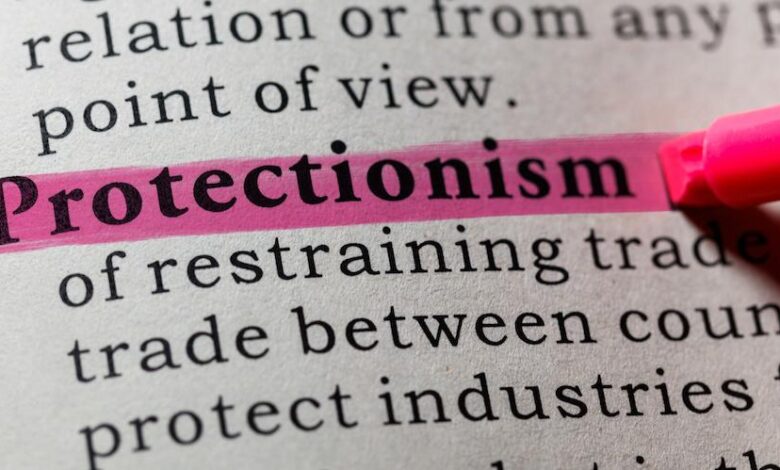
By Carl Bildt
Special to The Times Kuwait
Trade barriers, tariffs, and other protectionist tools are starting to feature more prominently around the world, often appearing under the heading of economic security. The recent decision by President Joe Biden’s administration to quadruple US tariffs on Chinese electric vehicles to 100 percent, as well as doubling the tariff on solar cells to 50 percent, and more than tripling the tariff on lithium-ion EV batteries to 25 percent, represents a momentous new step in this direction.
Until now, US restrictions on trade with China had been justified on national-security grounds: to prevent the Chinese military from acquiring sensitive technologies. While one could debate whether this policy made sense, it at least seemed to fit into a longer-term strategy. But these latest protectionist measures have nothing to do with China’s military capabilities. Instead, they aim solely to prevent cheaper, often better, green technologies from reaching US consumers.
The connection to the US election is obvious. Biden has been trying to head off Donald Trump by playing to the same protectionist sentiments that Trump, the presumptive Republican nominee, has been stoking for years. It was Trump, after all, who put the world on a new protectionist path when he imposed sweeping tariffs on steel, aluminum, and many imports from China. Keen not to be outdone by Biden, he has already said that he would double the tariff on Chinese EVs from Mexico and apply additional ones to an even wider range of products.
Even taken in isolation, such measures are expensive and counterproductive. Tariffs impose higher costs on consumers and reduce competitive pressures, and thus innovation. In this case, they will also impede the transition to a net-zero-emissions economy. There are no economically redeeming features to the policy. Worse, the latest round of protectionist measures is part of an increasingly disturbing and dangerous trend. Step by step, major powers are unraveling an international economic order that delivered enormous gains over many decades through trade integration and globalization.
These were hard-won gains. The first great wave of globalization ended with World War I, and was followed by trade wars and deep depressions throughout the interwar period. Although trade integration resumed after World War II — facilitating the reconstruction of Western Europe and Japan — its scope remained limited. It was not until the late 1980s and early 1990s that the next great wave of globalization began, with global trade finally returning to its pre-1914 levels.
The rapid expansion of trade and investment flows over the next three decades would prove spectacularly successful across practically every macroeconomic metric. Roughly one-third of everything that has ever been produced was produced during this period, leading to the rise of a new global middle class. Poverty was dramatically reduced, and the gap between rich and poor countries started to close for the first time since the start of the Industrial Revolution.
But over the past decade or so, debates about trade have changed. The new emphasis is on economic security, ‘de-risking’, and supporting domestic industries through massive industrial-policy subsidies. We seem to be going backwards, raising the risk of a return to the trade wars of earlier, darker times.
The International Monetary Fund and the World Trade Organization have both published extensive studies showing that deeper economic fragmentation would reduce global GDP by 5-7 percent, with a disproportionately large share of the burden falling on less developed countries. These are huge figures with huge consequences. The Sustainable Development Agenda that United Nations member states champion every year will become more of a grandiose dream than a practical objective. In the absence of a growing, still-integrating global economy, most of the 17 goals will become more difficult, if not impossible, to achieve.
One can easily imagine a better, more sensible scenario in which the United States returns to defending the rules-based global economic order; China rebuilds its credibility by adhering to the rules of the game; and the European Union lives up to its ambition to be a global champion of free trade. In doing so, each would advance its own interests, as well as benefiting the rest of the world.
Yet the trend is moving in the other direction. While Biden and Trump vie to establish their protectionist bona fides, Europe, too, has started to regard Chinese EVs as a threat, rather than as an opportunity to accelerate its green transition. Add to this China’s own talk about creating a self-sufficient ‘dual circulation’ economy, and India’s ongoing subsidies and resistance to trade, and you have the makings of a more radically fragmented global economy.
With these major powers rejecting the principles and policies that previously brought unprecedented economic gains, one must hope that policymakers everywhere will have the courage to step back and consider the bigger picture. History shows what we are risking by throwing globalization into reverse. We must not go down that path again.

Carl Bildt
A former prime minister and foreign minister of Sweden.
Copyright: Project Syndicate, 2024.
www.project-syndicate.org













